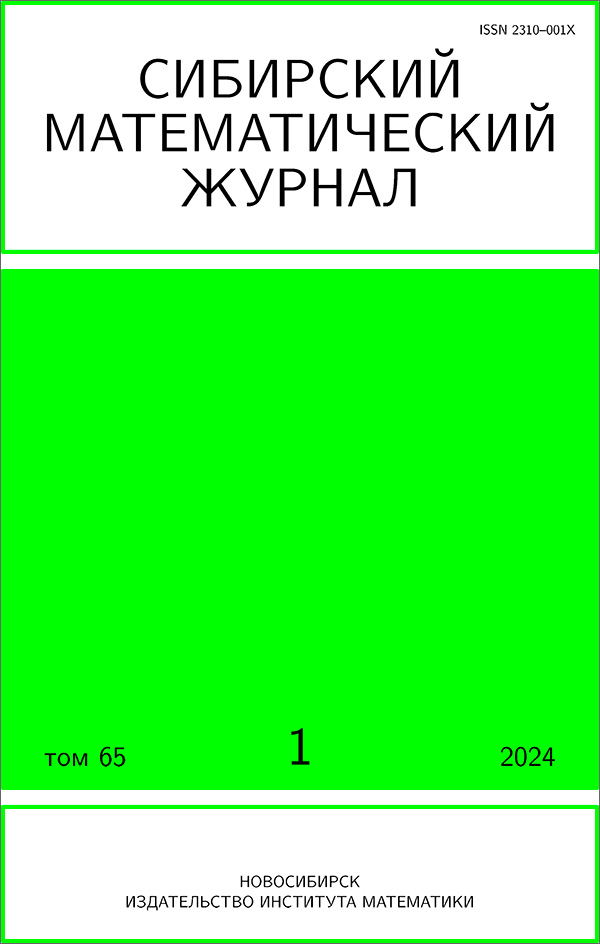|
|
Sibirskii Matematicheskii Zhurnal, 2010, Volume 51, Number 3, Pages 700–714
(Mi smj2119)
|
 |
|
|
This article is cited in 1 scientific paper (total in 1 paper)
The weak Bieberbach theorem for crystallographic groups on pseudo-Euclidean spaces
V. A. Churkinab
a Sobolev Institute of Mathematics, Siberian Branch of the Russian Academy of Sciences, Novosibirsk
b Novosibirsk State University, Mechanics and Mathematics Department, Novosibirsk
Abstract:
The weak Bieberbach theorem states that each crystallographic group on a Euclidean space uniquely determines its translation lattice as an abstract group. Garipov proved in 2003 that the same holds for crystallographic groups on Minkowski spaces and asked whether a similar claim holds in the pseudo-Euclidean spaces $\mathbb R^{p,q}$. We prove that the weak Bieberbach theorem holds for crystallographic groups on pseudo-Euclidean spaces $\mathbb R^{p,q}$ with $\min\{p,q\}\le2$. For $\min\{p,q\}\ge3$ we construct examples of crystallographic groups with two distinct lattices exchanged by a suitable automorphism of the group. For crystallographic groups with two distinct isomorphic pseudo-Euclidean lattices we also prove that the coranks of their intersection in these lattices can take arbitrary values greater than 2 with the exception of 4.
Keywords:
pseudo-Euclidean space, crystallographic group, weak Bieberbach theorem, translation lattice.
Received: 28.01.2010
Citation:
V. A. Churkin, “The weak Bieberbach theorem for crystallographic groups on pseudo-Euclidean spaces”, Sibirsk. Mat. Zh., 51:3 (2010), 700–714; Siberian Math. J., 51:3 (2010), 557–568
Linking options:
https://www.mathnet.ru/eng/smj2119 https://www.mathnet.ru/eng/smj/v51/i3/p700
|


| Statistics & downloads: |
| Abstract page: | 402 | | Full-text PDF : | 100 | | References: | 60 | | First page: | 6 |
|





 Contact us:
Contact us: Terms of Use
Terms of Use
 Registration to the website
Registration to the website Logotypes
Logotypes







 Citation in format
Citation in format 
